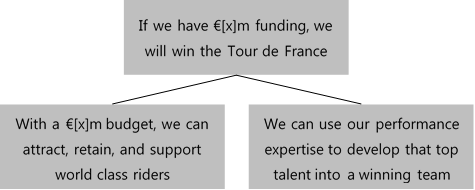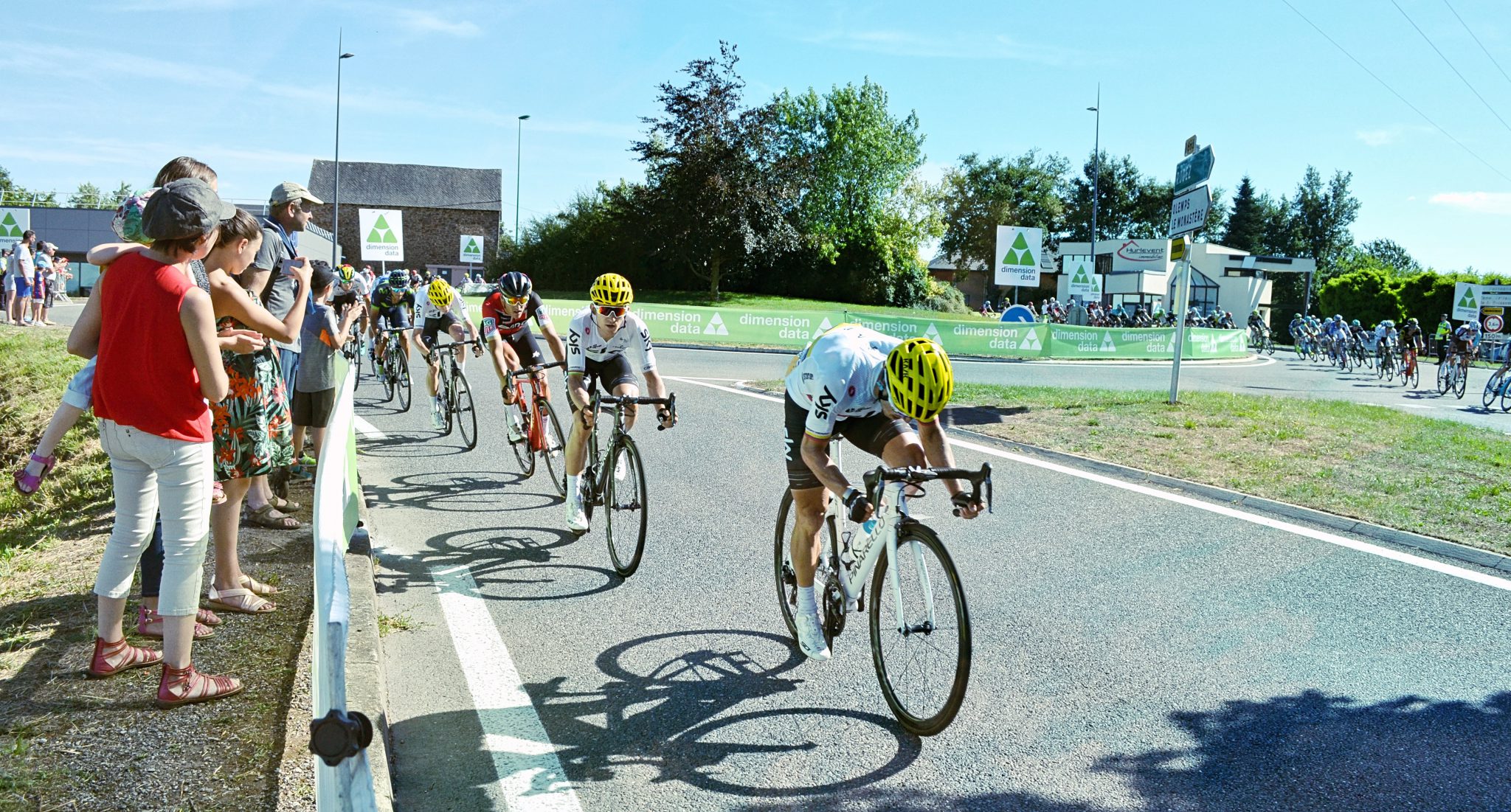An Ambition to Dominate the Tour de France
In 2008, British Cycling’s Performance Director wanted to create a professional road cycling team, and needed to pull together a plan to take to a potential backer for funding.
A simple idea lay at the heart of things. A Pro Tour level cycling team needs a budget of €[x]m. If we then add in our world leading performance expertise, we can win the Tour de France.
Applying some critical thinking before launching into a plan flipped this simple idea around. And it made getting the budget right as important as any of management’s performance expertise.
Starting with a Simple Logic Tree
The team started with the premise “We will win the Tour de France.” Then a simple logic tree clarified what needed to be true for this great achievement to happen. Here’s the tree:

Both legs of the logic tree need to be true to achieve the goal of winning the Tour de France. The right leg describes faith in a management team that wins gold medals. And critically whether their expertise can be transferred into winning on French roads. The new insight came in the left leg so I’ve expanded it here:

That box at the bottom left contains the insight that makes all the difference. In professional sports teams, unlike national and Olympic teams, the players can move if the money isn’t good enough. Looking across dozens of professional sports, including road cycling, there is solid evidence that to attract and retain the top talent, and to win the biggest prizes, the team needs to be one of those with the most money. You can have the best youth academy and coaching methods in the world. But the top players or riders will leave if they aren’t rewarded like their world class peers.
So investigating the budgets of the other top teams became the top priority, including the salaries of all the riders. This process also included costing for the best facilities and support. Adding everything up, and working out what was needed to be the best funded team, made the €[x]m funding requirement a lot bigger than it had been before anyone started sketching out logic trees.
So What?
You could look at the tree and say “that’s obvious.” Well we agree that’s how it should be. Drawing out a clear logic tree reveals important things in an obvious way. The main point – to win you need the most money – wasn’t obvious to anyone before some simple thinking brought it to everyone’s attention.
Laying out this clear reasoning and supplying the evidence also made things very obvious to Sky Sports, the company that was putting up the cash. They wanted to have a good chance of winning the Tour de France. They agreed with the thinking, understood the evidence, and believed in management’s ability to make it all happen. So they made the Team Sky the best funded team in the sport.
Obviously, a budget doesn’t ride a bicycle up giant French mountains. The Tour de France was won by the riders and the team supporting them, not by a logic tree and the associated business plan. The clear critical thinking using a simple logic tree just helped the team get enough money to pay for all the blood, sweat and tears. And it gave Sky some justified confidence that it was going to be money well spent.




